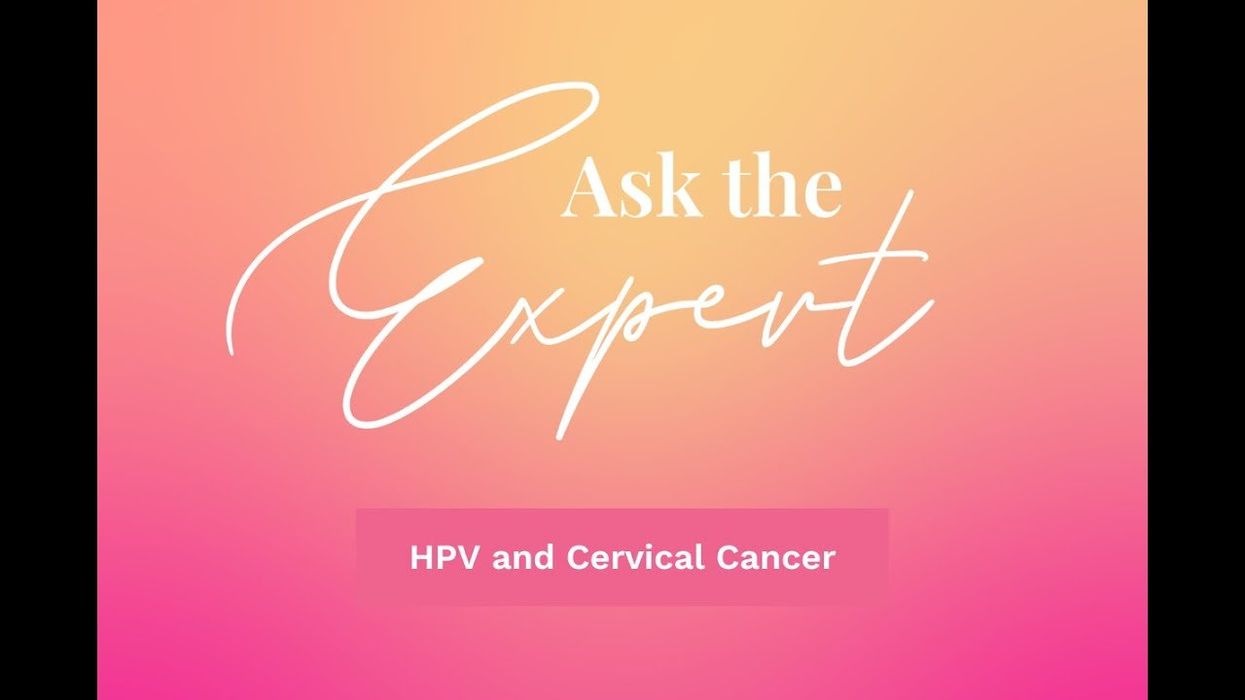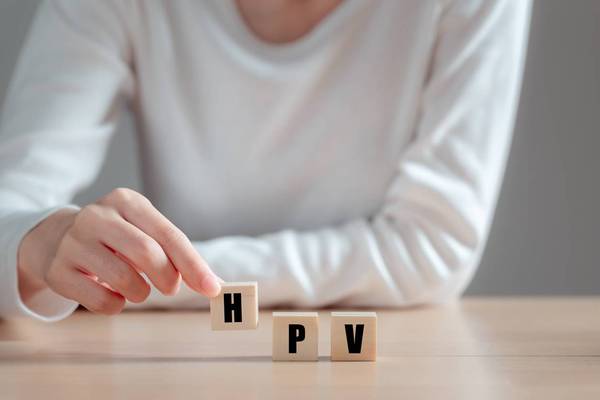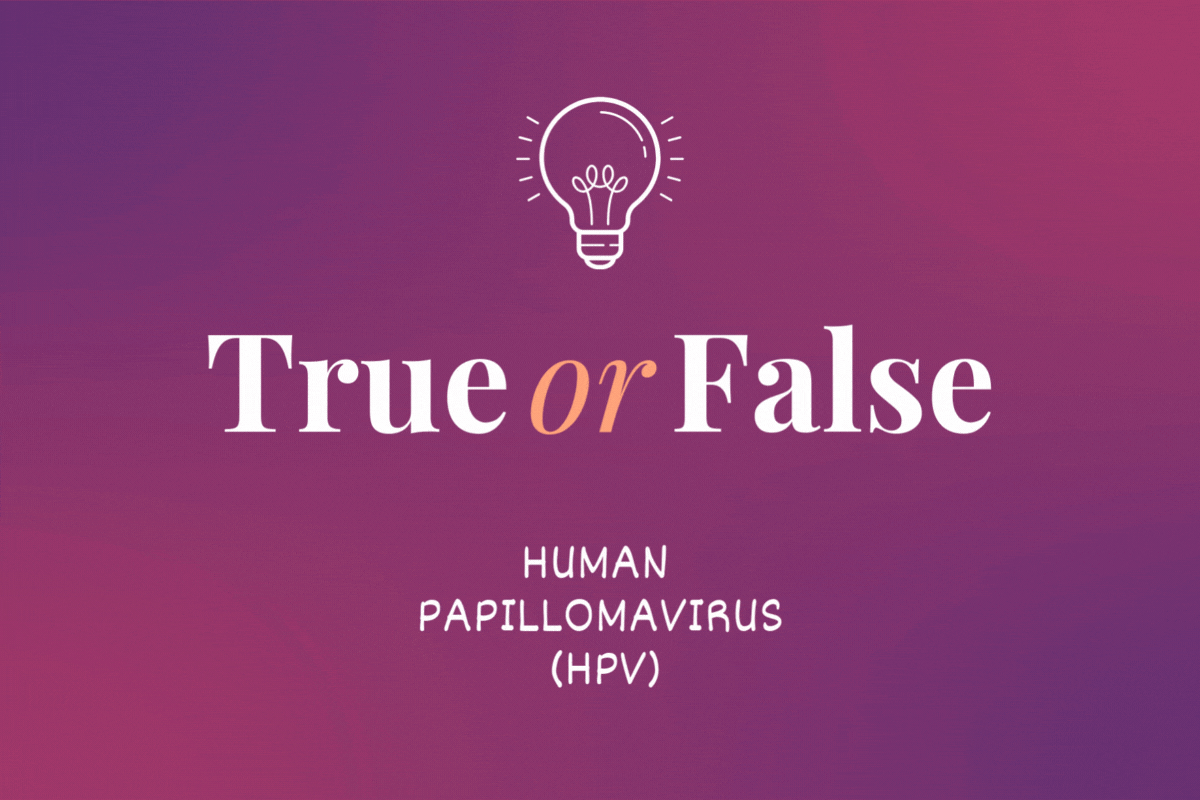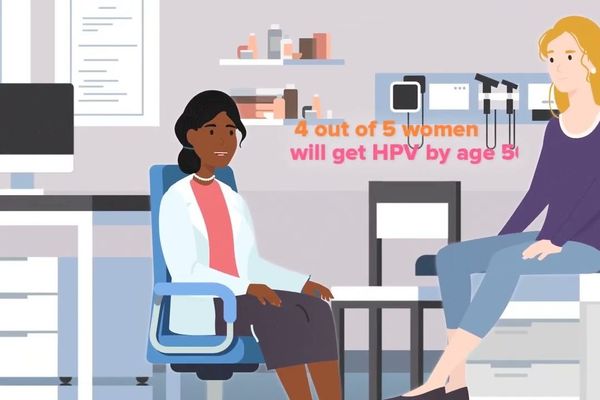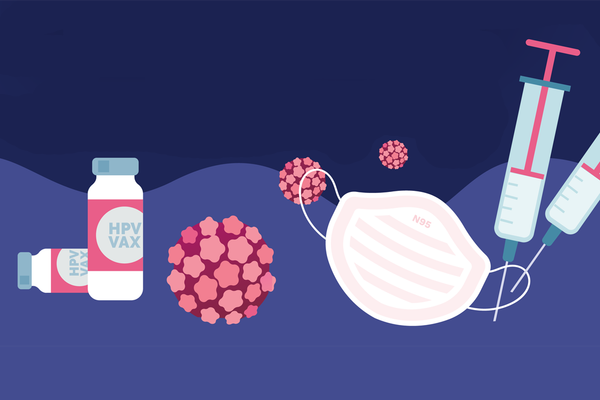This resource was created with support from Merck
The Expert:
Nancy R. Berman, MSN, ANP-BC, NCMP, FAANP
Women’s Healthy Advisory Council Member, HealthyWomen
Adult Nurse Practitioner, Millennium Affiliated Physicians, Michigan Healthcare
Professionals Clinical Instructor, Department of Obstetrics and Gynecology, Wayne State
University School of Medicine Fellow, American Association of Nurse Practitioners
What is HPV?
HPV is human papilloma virus. It's a really common skin cell virus that is passed person to person, and we know that most everyone is infected by one or more types of HPV at some time. And it's important to know that most everybody is infected, but most of the time the virus is cleared by an immune response and is no longer detected.
How is HPV connected to cervical cancer?
We know that most, in fact probably 99% of cervical cancers, are caused by HPV infection. And it's really important to know though, most everyone has infection by HPV. Cancer is a rare occurrence, and we're actually in all our efforts in screening are to prevent cervical cancer. And it's preventable because there's a pre-cancer. There is an abnormal change of cells that we can find and treat, and in doing that, prevent cancer from occurring.
What are the symptoms of cervical cancer?
Well, one of the reasons we try so hard to prevent cervical cancer is because it can go undetected, and usually, even pre-cancer and serious abnormal cell changes are not going to cause symptoms. If cancer is there, there can be bleeding, bleeding after sex. There can be discharge, sometimes discharge that is first thought to be an infection, but doesn't seem to go away. In advanced cases, you might see fatigue and nausea and weight loss, but again, all of our efforts are to try to prevent this cancer.
How do you screen for cervical cancer?
Well, things have really changed in how we screen and what we're trying to achieve into the future, which is HPV testing. Testing for 14 types of HPV is the most accurate test we can do. In screening, then, you may get a Pap test if you're under 30, but starting at age 30, we might add a test for HPV, so we're doing a Pap, which is a look at cells on a slide in an HPV test, but we also have a lot of evidence that the best thing we can do is test for HPV, and so we're moving towards starting at age 25, that all women will get an HPV test, and only those women who have a positive test for HPV will then have a Pap, where in the lab, without bringing you back, they can make a slide and see what the cells look like. HPV, that test tells us, do you have an infection? The Pap says, what do the cells look like? Are they altered because of the presence of that HPV infection?
How is cervical cancer diagnosed?
A cervical cancer diagnosis comes because there is a reason to look further, be it a Pap is abnormal, an HPV test is positive, that may lead us to looking at the cervix through a microscope, and that's called colposcopy. And then if there's an abnormal area of change, we do a biopsy and that information tells us what is going on in the cells. So cervical cancer, we're hopefully preventing, by finding the pre-cancer and treating it, but in some cases we may have a woman for some reason who has not been screened or something has changed and we're able to find it through a biopsy.
Can you develop cervical cancer if you’ve never had HPV?
We know that there are very, very rare cases of cervical cancer that are not caused by HPV, and some of those may be due to false negatives, which means a test was negative for HPV but it really was there. Though our HPV tests are very, very accurate, but that can happen. There are some rare cancers that are not HPV-related, and these are cancers that generally occur higher up in the canal of the cervix, but those are very, very rare.
Can you get HPV more than once?
There are 14 types of HPV that we test for that are considered high-risk or possibly cancer-causing types. We know that a woman could be infected by one or more types, and maybe from a new exposure, a new partner, be exposed and then infected by a different type.
Although the HPV vaccine is approved up to age 45, why is it only recommended up to age 26?
Well, I think it's important to understand the difference between FDA approval and recommendation. So the FDA has said that it is on label, meaning it is approved to be given to 45 years old, but if you look at the data or understand that the best use of vaccination is to give it to young women and men who have not yet been exposed to HPV, the vaccine is a preventive of infection, but it does not treat existing infection or existing abnormal changes of the cells, so it is a really individual decision in a woman who's older than 26 as to whether it makes sense for her to do it and whether she feels it's worth paying for if it's not covered by her insurance.
Can women still get cervical cancer even if they get the HPV vaccine?
Remembering that the HPV vaccine covers nine types of HPV, but there are 14 types we are concerned about, and when we test for, so there are some types that are not protected by the vaccine. But additionally, as I said before, that the HPV vaccine does not treat existing infection. And that's why the best time to give it is our 11-, 12-year-olds, who have never been intimate and not had any exposure to a partner who may be able to transmit. So, again, we're really trying to give the vaccine and give the protection before exposure to HPV for the first time.
- Clinically Speaking: Questions to Ask Your Healthcare Provider About Cervical Cancer Prevention ›
- HPV, Cervical Cancer and Cervical Cancer Screening: What Do You Need to Know? ›
- Fast Facts: Here’s What You Need to Know About Cervical Cancer and HPV ›
- A Conversation About HPV & Cervical Cancer Screening ›
- Your Guide to HPV & Cervical Cancer ›

